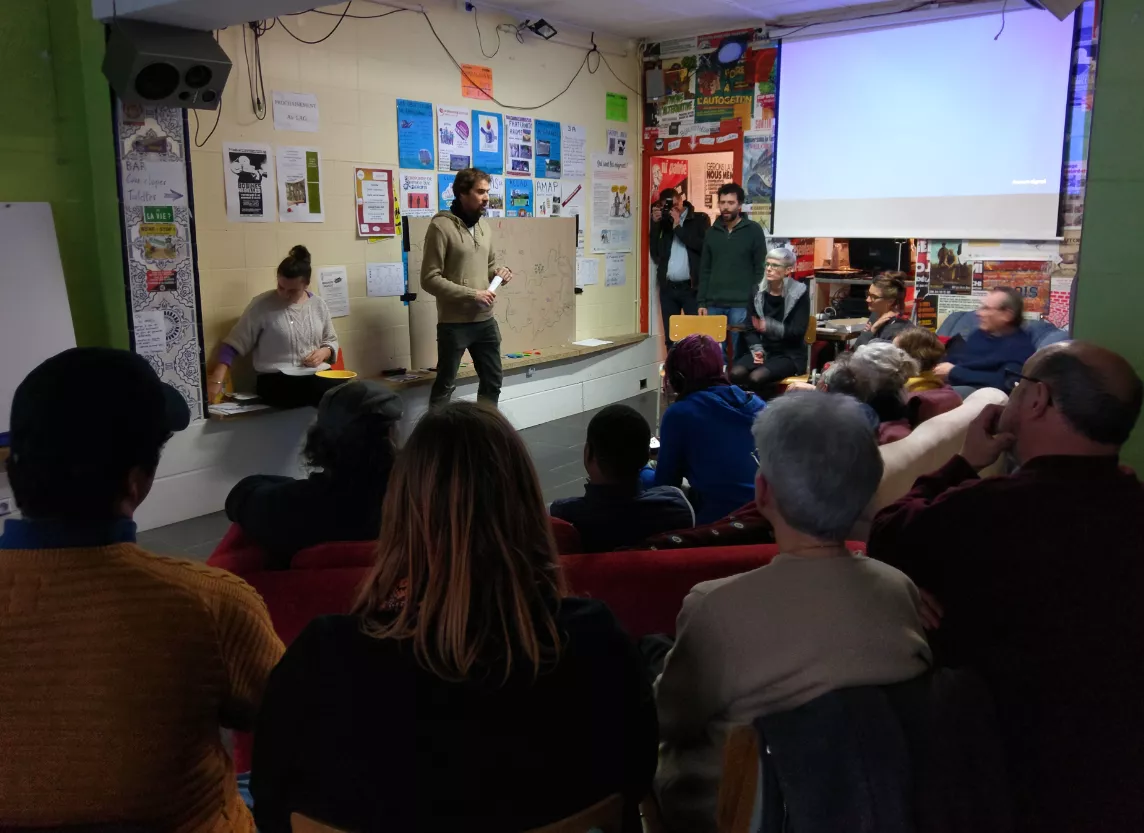How can we combat stereotypes on immigration? Reviewing practices in community education
[Translation French-English : EPALE France
Author : David Lopez]
Some people think that migration is a problem. The Sustainable Development Goals (SDG), derived from the Dakar Millennium goals, deal with issues of education, development, social. Migration is not one of those SDGs. However, poverty, the countries being left behind and the host countries are all elements which intimately link migration and SDGs. Three associations have come together to deconstruct ideas about migration. A meeting was held in Pas de Calais in March and others will take place before June 2019, including a meeting in Lille on 21 June 2019.

GRDR (migration, citizenship, development), the Lianes Cooperation (an international multi-stakeholder network in Hauts de France) and the Teaching League in Pas de Calais organised a training session in Liévin (Pas de Calais) with the theme of migration and stereotypes. Sixty people from the Département considered migration, using role-play situations led by representatives of the three associations.
First of all, the reception area itself is worth a look. LAG (Lieu AutoGéré), created in Liévin in October 2011, in an area of industrial reconversion. Founded by associations and activist groups to share their collective visions on different struggles (the rights of migrants, the rights of women, the unemployed, ecology, etc). Each member contributes with an annual voluntary donation of between 15 and 60 euros. Each member must take a turn of duty. It is open twice per week; there is a free shop to recycle donated goods. There are no subsidies, to preserve freedom of action and speech.
What do we mean when we talk about ways of leading discussion in popular education?
There is often confusion between the methods of leading discussions, in non-formal or community education. It is a set of methods from different professional 'families': social work, group leading, adult education and even in-house training to mobilise people, the participants. The method is necessary, but the objectives or conditions of the group leading are the most important. I will try to give a few markers:
active sessions, where the trainee, the participant, is at the centre of the activity for which he plays a central role;
activities with one or more objectives to achieve. These must be known and clarified from the outset by the facilitator.
the fun aspect, where the pleasure of doing and learning is at the heart of the activity.
Training sessions on the fight against the stereotypes in migration.
The evening saw different aspects. First of all, ice-breakers: games about the definitions of migration. The practice of mobile discussion, often used in youth actions. Then knowledge: 'hot' and 'cold' knowledge. This was about witness statements, and the knowledge of scientists and researchers. On a map of the area, everyone marked events, places and characters associated with migration. The facilitators also provided figures on the situation in the Pas de Calais.
During the training session, several small groups were given a jumping-off point for a life story. For example: a childless Afghan refugee couple without papers arrived in France in 1990. They reached the mining area with very little money. The first group devised the story of this couple one year on, then the groups changed, and another group continued the story focusing on five years later, followed by a third group 15 years later, and the last group, 40 years after their arrival. The life stories were then read in front of the entire group, and a discussion began by focusing on the stereotypes, the aspects mentioned, and the view of the non-migrants on daily life.
It's exciting to live and to relive training actions, where everyone learns from each other, from their knowledge, and also from their visions and thoughts. Community education at the heart of the mining area!
For whom was this event intended?
The audiences of the training session were twofold:
On one side the usual activists, involved in associations such as Amnesty, Cimade, etc. Their objective was to learn active ways of speaking about and understanding the question of migrants.
On the other side, facilitators from the League, the LAG, the Regional Multi-Stakeholder Network (Lianes Coopération), and GRDR. Their aim: sharing group leading practices; discussions with the associations interested in migrants; learning and sharing.
This joint work of the three associations is ongoing. On 29 June in Lille an event on the inclusive towns will be held, with meetings between councillors, associated stakeholders and inhabitants. This will be the closing event of a project funded by the Erasmus+ programme, youth sector, on the economic development of youth actions among the Belgians, Spanish, Italian and French on the theme of migration.
A few Internet links:
https://grdr.org/Le-the-palabre?var_mode=calcul
https://grdr.org/ODD-et-migrations
To get in contact with any of these people, please do not hesitate to contact me.

David Lopez is EPALE thematic coordinator on Community Education.
Comentario
Göç konusundaki klişelerle nasıl mücadele edebiliriz?
- Inicie sesión o registrese para enviar comentarios





This initiative provides a